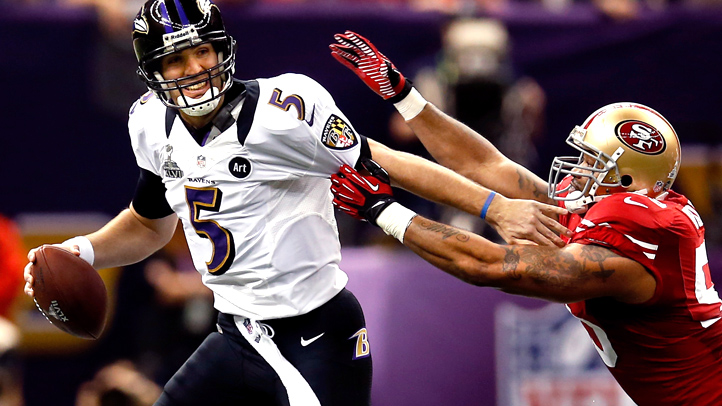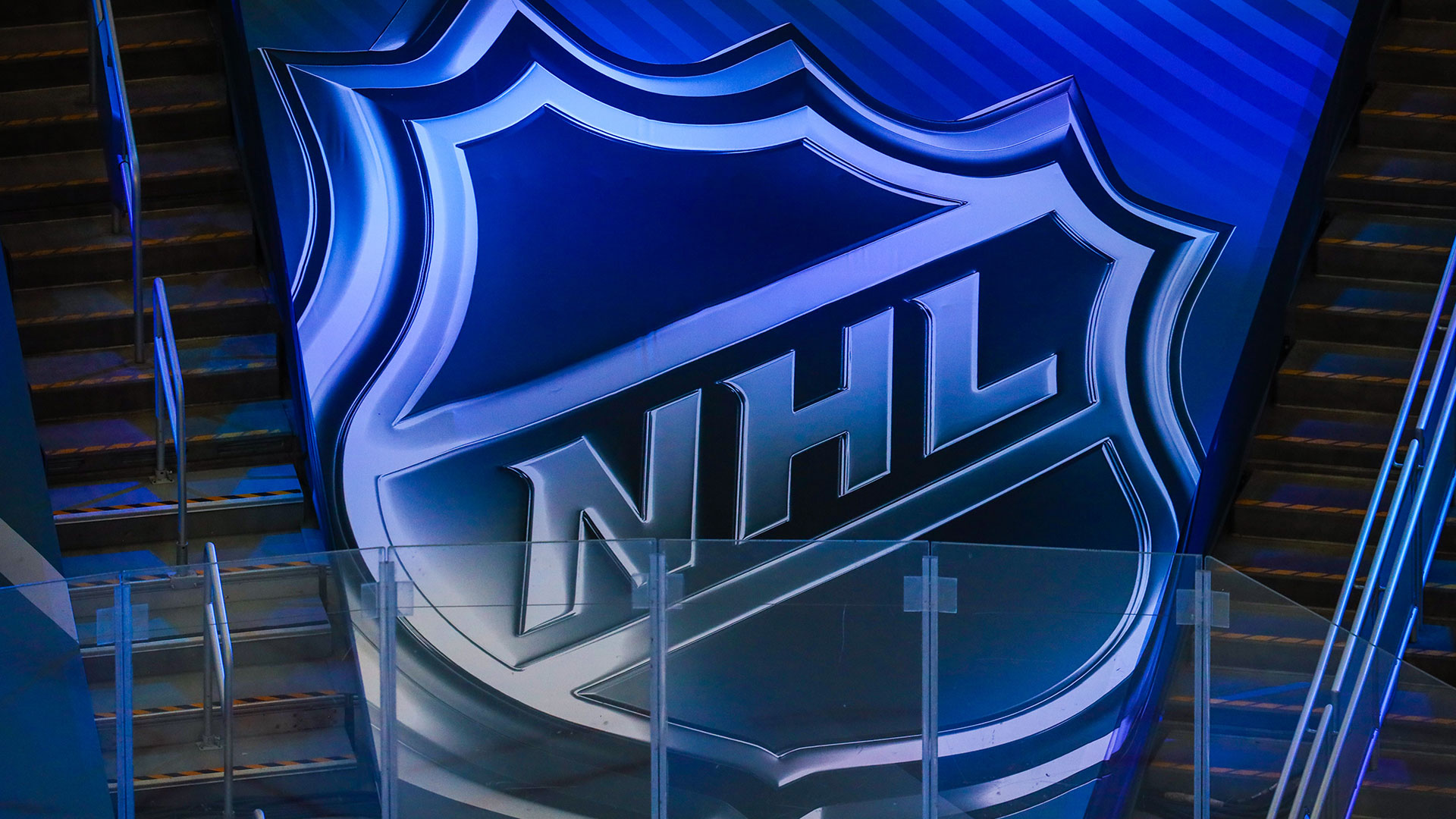The blackout scare that captivated the nation and raised brief fears of terrorism after halftime of Super Bowl XLVII in February 2013 was just one in a long series of security concerns investigated by federal Homeland Security teams during or before the game, according to an investigation by the News 4 I-Team.
A two-year review of government emails, emergency notifications and police reports indicate a long and fast sequence of potential threats in the hours just before kickoff of the Super Bowl at the Superdome in New Orleans, the nation’s most important and most visible sporting event of the year. Each scare was considered serious enough to warrant formal notification to the U.S. Department of Homeland Security. Some of the threats have since been deemed “worrisome” by a homeland security expert who reviewed the I-Team’s findings.
Among the findings: Stolen assault weaponry, specific threats against the halftime performer and fears about explosives placed near the Superdome itself.
No injuries or attacks were reported during Super Bowl XLVII and its surrounding events. But the incidents unearthed by the I-Team spread quickly among federal agencies and law enforcement officials charged with securing the game and crowd of 71,024 fans.

None of these incidents was publicly disclosed until incident reports were obtained through the Freedom of Information Act by the I-Team.
"It's Gonna Blow Up After Beyonce's Performance"
Officers with the Baltimore County, Maryland, Police Department were dispatched on 378 calls during the evening hours of Feb. 2, 2013, 24 hours before the hometown Baltimore Ravens were set to play the San Francisco 49ers in Super Bowl XLVII. Some of the calls were routine. The cops checked out a green Jeep, believed to have been stolen, at a movie theater. They checked the well-being of a suicidal man in the town of Middle Run. And they took a report on a missing woman who lived just south of the city Beltway.
Later that night, at least one officer was also dispatched by the Baltimore Field Office of the FBI to check a public pay phone outside the Baltimore city limits. At 6:55 p.m., someone had used the phone to call in a threat to the Superdome, which is officially known as the Mercedes-Benz Louisiana Superdome. “The Mercedes-Benz Building in New Orleans is going to blow up. It’s gonna blow up after Beyonce’s performance,” the caller said, according to federal incident reports obtained by I-Team. The caller was anonymous, though he told the law enforcement officer who answered his call that he was from Baltimore. And he specified that he knew of the bomb threat, because his brother had “dealings” with “Hebrew Israelites.”

Police found the pay phone but couldn’t find clues about the caller.
Sports
By 2 p.m. on game day, details of the threat began to spread among federal law enforcement. FBI agents notified the Federal Emergency Management Agency, which classified the bomb threat as an event of “medium” significance and notified its regional director of National Preparedness.
The threat never came to pass, though the timing of the threat is eerie. The blackout struck the Superdome minutes after Beyonce’s performance.
The Krazy Korner Bar
The Krazy Korner Bar lists its hours of operations as “5 p.m. - till” – a not-so-subtle reference to the party atmosphere of a Bourbon Street tavern with a “Bourbon Balcony Bash” in the city of Mardi Gras.

The bar sits in the heart of New Orleans’ French Quarter. A wall of people makes the immediate patch of Bourbon Street outside nearly impassable during special events, including Super Bowls.
The bar also sits less than a mile-and-a-half from the 50-yard line of Super Bowl XLVII.
About five hours before kickoff, a caller told a New Orleans police officer in the French Quarter that “systematically placed explosive devices” had been placed inside the Krazy Korner Bar. City police officers responded and “cleared the scene,” according to an internal emails exchange by federal officials. The officers determined there was no bomb.
But the threat was quickly shared to federal agents and FEMA. And, similar to the bomb threat from Baltimore, was listed as a “medium” level event by FEMA officials, who shared details of the threat with regional administrators in Louisiana.
"The Rifle Was Missing, Along With His Glock"
The police car was unmarked, with none of the visible distinguishing characteristics of a police cruiser. So it’s unclear if the crooks knew the bounty they’d find in the trunk.

New Orleans police Officer Frankie Watts parked his agency Crown Victoria outside his home along the cul-de-sac on Sandpiper Court in Marrero, Jefferson Parish, about a 15-minute drive from the Superdome and Watts’ nearby police precinct.
The three burglars struck about 12 hours before kickoff. They pried open the trunk. They found and took more than a dozen pieces of sensitive police equipment, including a 40-caliber semi-automatic gun, a Taser gun, swat team gear, handcuffs, a tactical vest, a gas mask, dozens of bullets and magazines with dozens of rounds.
The crooks also stole a pair of Watts’ New Orleans Police Department badges, with which they could’ve disguised themselves as officers, many of whom were dispatched to help patrol the streets and grounds near the game.
They also took a police “Tec-25 flash bang” device, which is used by officers as a distraction device, emitting an extraordinarily loud noise and smoke when detonated.
Though police began an investigation and a search for the burglars immediately, no arrests were made before game time. None of the equipment was recovered either.
Not until May 2013 would cops arrest two burglars. Blake Billiot and Jabari Hester, both residents of Marrero in Jefferson Parish, were arrested by the Jefferson Parish Sheriff’s Office. But to this day, only one Glock handgun and the ballistic vest have been recovered.
Word of the theft of sensitive equipment quickly spread among law enforcement agencies working the game. FBI New Orleans Field Office spokeswoman Mary Beth Romig said, “The FBI was advised of the burglary of the New Orleans Police Department vehicle through the FBI’s Joint Operations Center, and worked with our law enforcement partners to ensure that the information was appropriately disseminated for situational awareness.”
Security expert Michael O’Neil, a consultant for New York-based MSA Security, said the theft of such equipment on the eve of a Super Bowl is noteworthy. “The more worrisome thing is the loss of a fully automatic M-4 Assault Rifle," O'Neil said. "The .223 caliber round, fired through an M-4, will penetrate almost any law enforcement vest.”
O’Neil said the police badges and uniform equipment, “could easily be utilized by an individual or group looking to compromise the security perimeter at an event by deceiving security personnel.”

Four hours before kickoff, a FEMA official notified agency leaders about the thefts. Again using the classification of “medium” significance event, an agency administrator alerted colleagues “NOPD continues to investigate” the theft.
Watts is no longer an employee of the New Orleans Police Department. Watts’ departure from the agency was unrelated to the theft, Department spokesman Tyler Gamble said.
Gamble said, “Officer Watts had an exemplary record during his time with the New Orleans Police Department. Following this incident, the NOPD launched a standard disciplinary investigation into Watts’ actions. As a result of the investigation, Watts received a letter of reprimand.”
Soon after the theft, Watts was honored for heroic duty during a May shooting spree in the city. He was hugged by the city mayor – and the photo spread nationwide.
Gamble, the New Orleans Police Department spokesman, said the discipline action taken against Watts was “based on the officer’s disciplinary record.”
Efforts to reach Watts by phone were unsuccessful.
A Jefferson Parish clerk of courts official said Hester and Billiot pleaded guilty to burglary in 2014. A judge sentenced each to five years of probation.
"Twitter Postings"
The public address announcer urged fans to remain in their seats, just after the lights and power failed inside the Superdome after halftime. The 34-minute outage was a spectacle to fans, players and tens of millions of television viewers alike.
The outage was eventually traced to an abnormality and breakdown in the stadium’s power system.
As CBS Sports television cameras and audio failed, an eerie and unexplained image filled television screens worldwide. Confusion reigned inside the dome too.
“I didn’t know what was going on,” said San Francisco 49ers defensive back Dashon Goldson, after the game.
The FBI quickly ruled out terrorism as a cause.
But internal U.S. Department of Homeland Security emails, obtained by the News4 I-Team, reveal top federal investigators were reviewing social media postings in the minutes after the outage.
One email sent at 9:54 p.m. states, "Digital Sandbox, at the New Orleans EOC, has discovered 'Twitter' postings referring to 'power outages' at the venue were posted early today. All related suspicious traffic and information has been forwarded to the FBI representative at the New Orleans EOC. "
A second email sent at 10:01 p.m. updates the investigation. "All angles being reviewed. ‘Digital Sandbox’ is the Situational Awareness tool in use in the Operations Centers," the email states.
Digital Sandbox, on its website, said its security product is an algorithmic analytics tool used by federal investigators to measure and assess threats. The internal emails reviewed by the I-Team indicate the tool was used by the US Department of Homeland Security to review social media and Twitter postings in the minutes after the outage.
Staging Area Threat
Other emails released by FEMA administrators show another bomb threat had been investigated in proximity to the field, less than two hours before the game. The threat was made to the staging area at the Superdome, where event organizers were managing equipment and manpower. FBI investigators were among the law enforcement officers who ensured the safety of the area, after responding to the call.
The FEMA emails indicate the threat was made before 3:47 p.m. central time on game day.
Catching the Interest of the "Emotionally Disturbed"
O’Neil, the security expert, said it is likely law enforcement assumed the worst and responded immediately as if the power outage was caused by sabotage.
Whether the quick series of threats in the hours before the blackout contributed to the urgency of investigators is unclear.
“These types of threats are consistent with high-profile events," O'Neil said. "There is typically generic chatter regarding the intent to attack a person or venue as well as the placement of explosives. Increased reporting of special events and excitement surrounding a major sporting matchup can catch the interest of emotionally disturbed persons who may respond inappropriately.”
These threats, though potentially alarming, are not publicly announced. The details are not released. None would’ve become public knowledge without the release of records and emails by federal agents, after formal Freedom of Information Act requests by the News4 I-Team.



